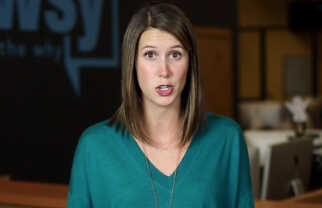For the second time since 2012, voters in Slovenia have rejected an attempt to legalize gay marriage.
自2012以來的第二次,斯洛文尼亞選民拒絕同性戀婚姻合法化。
Back in March, the country's parliament passed legislation redefining marriage as a "union of two" rather than a "union of a man and a woman." It also granted gay couples the right to adopt children.
早在今年3月,斯洛文尼亞議會通過立法,重新定義婚姻為“兩個人的結合”,而不是“一個男人和一個女人結合”。立法中也允許同性戀夫婦收養孩子的權利。

A group called the "Children Are at Stake" gathered more than 40,000 signatures and demanded a referendum. Critics of the legislation argued that adoption by gay parents would go against a child's need both a mother and a father figure.
一個被稱為“兒童正處于危險”的群體聚集了40,000多個簽名,要求進行全民投票。立法批評者認為,同性戀父母收養孩子違背了孩子需要一個母親和一個父親的需求。
As of Sunday afternoon. authorities said 90 percent of the votes had been counted and 63 percent voted against same-sex marriage.
截至星期日下午,當局稱百分之90的選票已經被計算在內,其中百分之63的人投票反對同性婚姻。
Since 2006, gay couples in Slovenia have been granted rights under civil partnership. Slovenia, a largely Catholic country, would have been the first Central European, Slavic and post-communist nation to approve gay marriage.
自2006以來同性戀伴侶在斯洛文尼亞已獲得民事伴侶權利。斯洛文尼亞,一個主要的天主教國家,成為第一個中歐、斯拉夫和后共產主義允許同性戀結婚的國家。
But other Central European countries are moving in the opposite direction. Slovakia and Croatia recently followed in the footsteps of neighbors like Poland and Bulgaria by updating its constitutions to stress marriage is only valid between a man and woman.
但其它歐洲國家正朝相反的方向發展。最近,斯洛伐克和克羅地亞也緊跟著鄰國像波蘭和保加利亞的腳步,更新其憲法強調婚姻只有在男人和女人之間才能生效。
In total, 14 countries in Europe allow same-sex marriage. Ireland joined that list in May after a nationwide vote.
歐洲總共有14個國家允許同性婚姻。愛爾蘭在經過全國公投后于五月加入該列。
譯文屬可可原創,僅供學習交流使用,未經許可請勿轉載。












